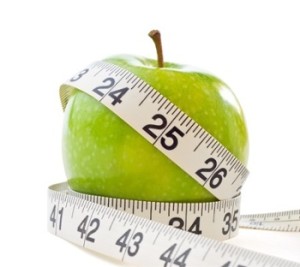What You Didn't Know About Stress and Your Inability To Lose Weight
Have you been struggling with your weight loss? Are you eating all the right foods, getting the right amount of exercise, and following your weight loss plan, but still not dropping the pounds? Did you know that your stress could be affecting your weight loss? The reality is that high levels of stress and weight loss do not work well together.
 When you become stressed your body released a hormone called Cortisol from the adrenal glands. This hormone regulates both blood pressure and the bodys use of macronutrients. It also affects your bodys ability to convert sugars into energy.
When you become stressed your body released a hormone called Cortisol from the adrenal glands. This hormone regulates both blood pressure and the bodys use of macronutrients. It also affects your bodys ability to convert sugars into energy.
Typically cortisol provides sustained energy. However, when chronic stress becomes normal there is a chronic excess of cortisol and this is detrimental to your weight loss. Too much cortisol will suppress thyroid function, lower the immune system and can imbalance your blood sugar leading to diabetes. Additionally, over time this excess cortisol will cause the loss of muscle mass, which also slows your metabolism.
During high levels of stress, cortisol convinces your body that times are hard and your body correlates that with the possibility of starvation. In this way the body becomes resistant to weight loss. It hold onto the fat on your body and the fat from the foods you eat and stores them for use later. Cortisol will also move fat from healthy areas like your hips and move it to your abdomen, which has a higher amount of cortisol receptors.
Many people also find their appetite is increased when they are under high amounts of stress. Typically, people find comfort in eating when they dealing with high emotions. Common comfort foods are foods that are sweet or high in salt. These foods add more unhealthy visceral fat to you abdomen. The excess cortisol inhibits your body from burning this fat for energy. Unfortunately, without an optimal ability to burn fat successful weight loss becomes extremely difficult.
There are some simple changes you can make to help alleviate this problem. Avoid simple carbs, and processed foods. Limit your caffeine intake, and get plenty of quality proteins. Drink plenty of water and get plenty of sleep. Ultimately, you have to deal with the stress. Take a walk or try a hobby. Write in a journal or talk with a friend. Avoid stress and weight loss. Consult your doctor.
To schedule your free consultation please click below or call (212) 759-8118.
